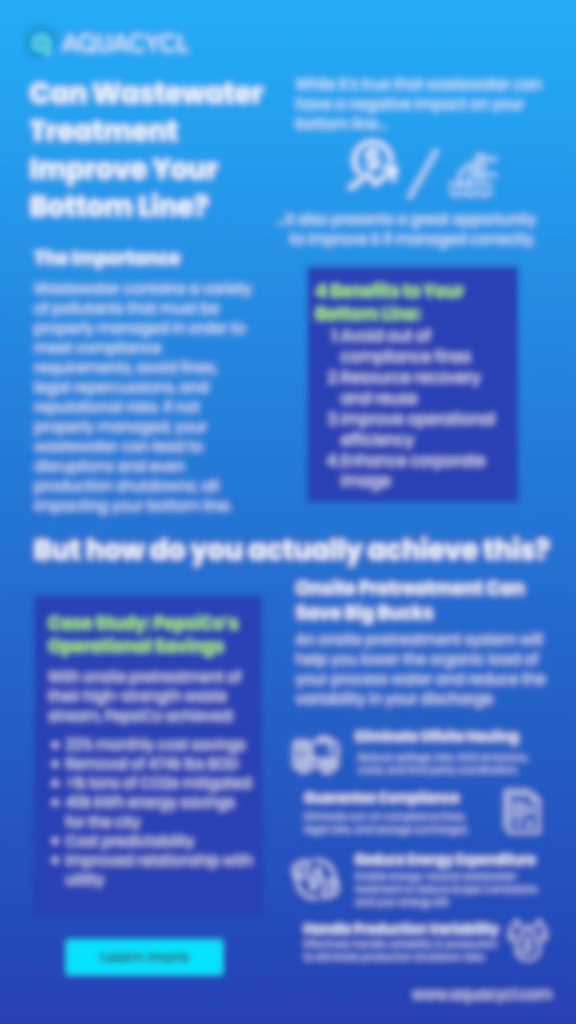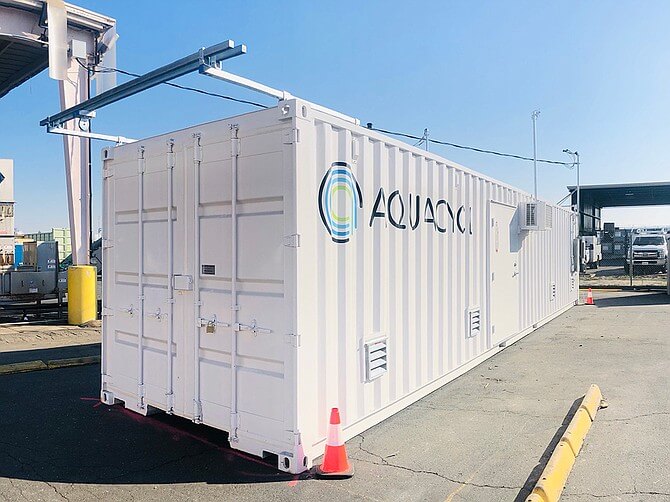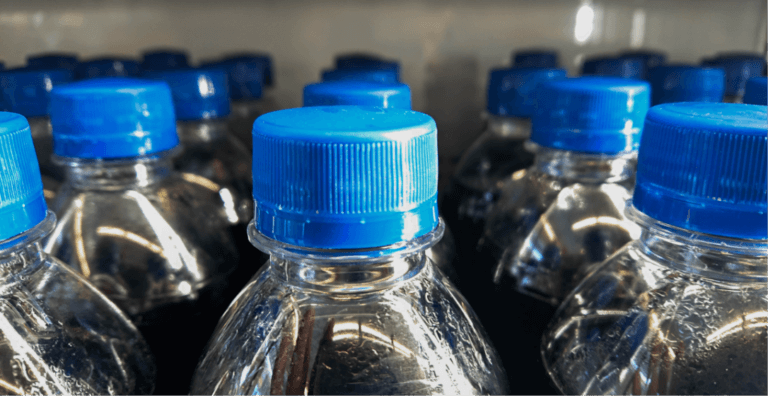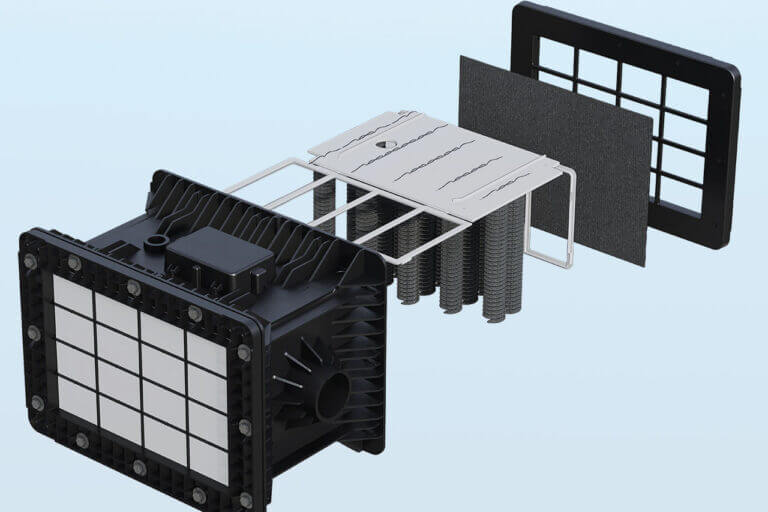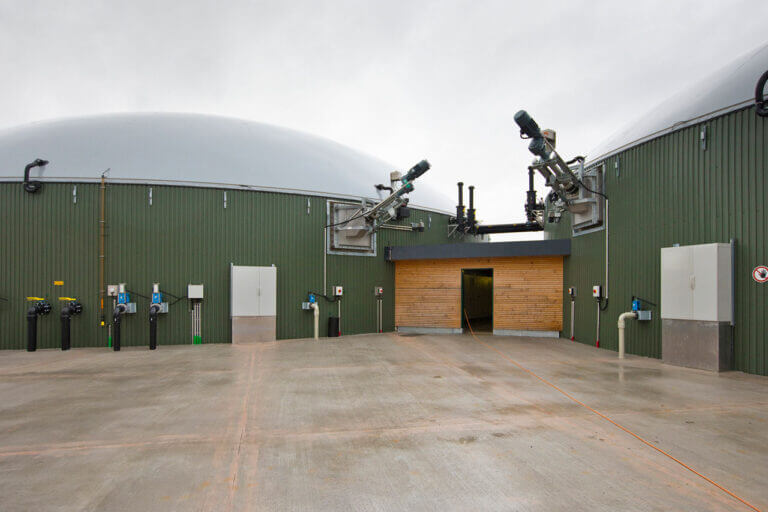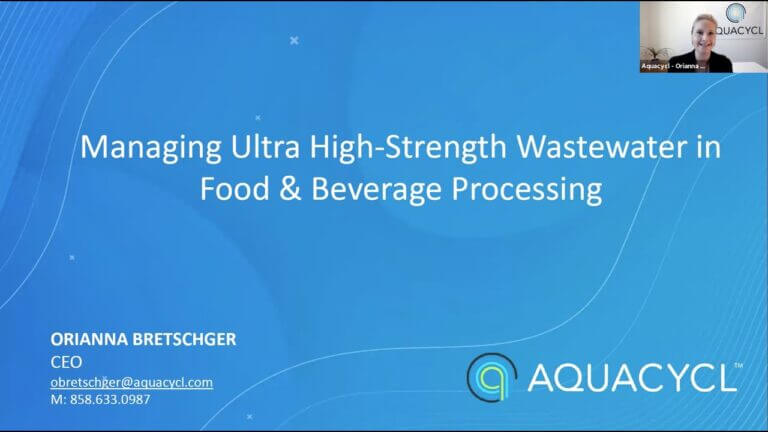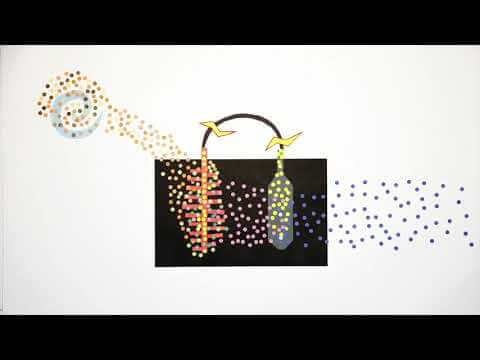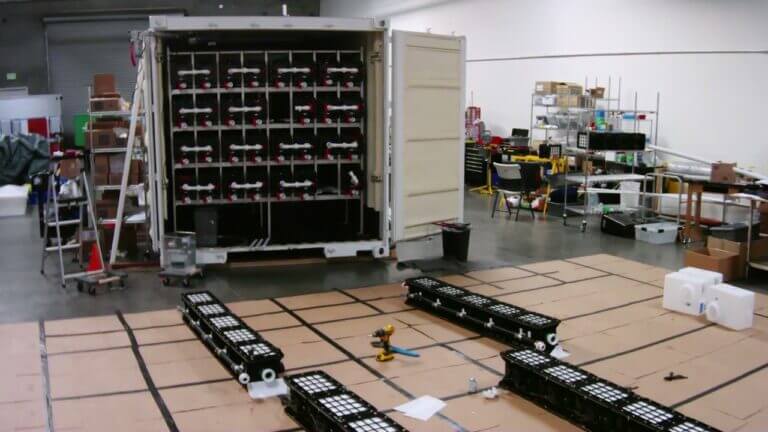Process water can have a negative impact on your bottom line, but it can also present an opportunity to improve it – especially for beverage and convenient foods manufacturers. For our PepsiCo clients, process water also presents an opportunity to efficiently reach pep+ goals for decreased water use and carbon emissions.
Let’s explore these opportunities as well as review a case study with a PepsiCo bottling facility that has already implemented sustainable, cost-effective process water treatment.
The Importance of Process Water Treatment
Before delving into the financial implications, it’s essential to understand why process water treatment is crucial for businesses. Process water often contains a variety of pollutants that can pose serious risks to both the environment and public health if not managed appropriately. Discharging process water without proper treatment can lead to water and soil contamination and ecosystem harm.
For beverage and food producers, process water treatment is especially crucial. Beverage and food manufacturers produce process water containing high organic concentrations, measured as chemical oxygen demand (COD) and biological oxygen demand (BOD), which must be adequately managed to meet compliance requirements, avoid fines, legal repercussions, and reputational risks. If not properly managed, your process water can lead to disruptions and even production shutdowns; all impacting your bottom line. To learn more about process water management solutions for beverage and food manufactures and the challenges to consider, check out this blog.
Benefits on Your Bottom Line from Process Water Treatment
With hauling, onsite treatment, and sewer surcharges, beverage and food manufacturers often see process water as a sunk cost. But efficient process water management can actually provide cost savings and help meet sustainability goals – leading to benefits to your bottom line:
- Guarantee Regulatory Compliance and Avoid Fines
One of the most direct ways in which process water treatment affects the bottom line is through regulatory compliance. Governments and environmental agencies set strict standards for process water discharge, and failure to meet these standards can result in fines and other penalties. Adequate process water management ensures compliance and avoids negative repercussions.
- Resource Recovery and Reuse
Process water treatment systems can enable resource recovery of nutrients and energy, and enable water reuse. By implementing recovery processes, you can reduce the dependence on external resources, leading to significant cost savings over time, and even a cost benefit for resources recovered.
- Operational Efficiency
A well-designed process water treatment system that works in concert with production optimization contributes to the overall operational efficiency of a facility. Efficient process water capture and treatment processes can result in lower energy consumption, less water usage, and minimized personnel time addressing process water issues. Real-time monitoring of process water streams and treatment systems can also help to identify potential issues before they escalate, avoiding costly repairs and downtime.
- Enhanced Corporate Image
Consumers are becoming increasingly environmentally conscious, and they prefer to support businesses that demonstrate a commitment to sustainability. Investing in optimized process water management not only fulfills regulatory requirements but also enhances a company’s corporate image. A positive brand image can attract environmentally conscious customers and partners, leading to increased sales and business opportunities.
Achieving Cost Savings Through Process Water Treatment
The first step to achieving cost savings through process water treatment is to eliminate offsite hauling and reduce sewer surcharges associated with BOD. How do you do this? Through onsite BOD removal.
Onsite pretreatment, beyond pH adjustment, can help you lower the organic load of your process water and reduce the variability in your discharge. Removing the BOD will result in lowered sewer surcharges and avoid unpredictable costs associated with the discharge of bad batches or product returns without hauling offsite. But the key is to implement an onsite process water treatment system that is simple, sustainable, enables production growth, and can handle the challenges of your beverage and food production process water to truly achieve those bottom-line benefits.
Let’s explore how we achieved this for a PepsiCo bottling facility in California.
Case Study: PepsiCo’s Operational Savings with Aquacycl
This PepsiCo bottling facility was seeking a cost-effective and sustainable solution to improve their existing process water management. The plant needed a solution that could address process water discharge challenges.
This facility generates high concentration process water from parts of the batching and bottling processes, in addition to crushing operations that address product returns. The occasional bad batch combined with crushing discharge results in a diverse and variable waste stream. Because of this, the plant faced unpredictable costs from the utility and regularly faced large swings in monthly sewer surcharges.
Aquacycl evaluated the plant waste streams and found that a small volume of their total process water discharge, approximately 3%, actually accounted for 60% of the total organic concentration being sent to sewer, which was more than doubling sewer surcharges. So, by taking this small volume stream and pretreating it through our BETT system, this facility achieved up to 22% cost savings on their monthly process water bills. But that’s not all, the Aquacycl system also mitigated over 1,000 tons of CO2e and saved the city 400,000 kWh within the first year of BETT operations.
These results helped the PepsiCo facility to make strides towards their pep+ goals while benefitting their bottom line. They now demonstrate leadership in corporate water stewardship and continue to have a positive relationship with the utility. Read the full case study here.
Aquacycl’s Cost-Effective Process Water Treatment Solution
Aquacycl approaches process water treatment differently than most, which is how we can achieve multiple benefits for PepsiCo process water. Instead of designing large systems to treat all of the plant flow, we evaluate where and how the process water is generated throughout the facility so that we can capture and separately manage the most concentrated production streams and minimize the physical and operational footprint of a treatment system. This ensures cost reductions, sustainability, and other business benefits, always keeping your bottom line in mind. Additionally, Aquacycl provides solutions through a service model that requires no capital investment and minimal onsite resources for addressing process water.
As discussed in the case study above, a majority of sewer surcharge costs for the PepsiCo bottling facility came from a small percentage of their total process water flow. By treating that small, more challenging volume, we are able to provide a cost-effective solution for process water. Through our work across many different industry applications, we have found that this approach is true for not only beverage manufacturers, but also food producers.
Treating these concentrated streams without dilution is not possible with conventional technologies; however, Aquacycl utilizes a BioElectrochemical Treatment Technology (BETT). BETT uses natural microbes to consume the organics in the process water and produce direct electricity. This type of treatment is a very optimized biological process that accelerates the removal of organics without aeration and can handle concentrations up to 10x higher than conventional technologies. The electricity that is produced from the system can be utilized to provide an energy-neutral system yielding 90% less greenhouse gas emissions than other treatment approaches.
With a compliance guarantee and real-time, remote monitoring and controls, you can say goodbye to unpredictable sewer surcharges, hefty fines, and requiring production personnel to manage process water… all increasing the benefit to your bottom line. Aquacycl can also enable onsite process water reuse, so you can continue stacking those bottom-line benefits while getting closer to your pep+ goals.
There’s a reason Ben Duncan, Production Manager at PepsiCo Fresno, is quoted as saying “I think this is going to blow up. I’m excited about this one.”
Learn more about the benefits we can bring to your bottom line at https://aquacycl.com/solutions/industries/food-beverage/
Bottom Line Benefits Infographic Download
"*" indicates required fields
